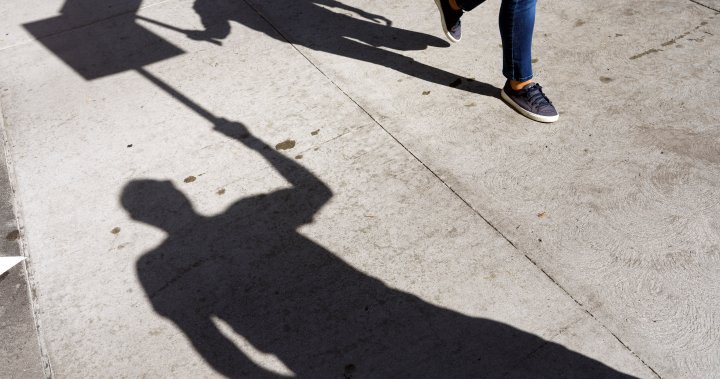James C. Petrillo was apoplectically mad. As head of the American Federation of Musicians, the largest musicians union in the country, he was sick and tired of seeing members not being paid what they were owed when it came to record sales.
The people who made records were not getting their due from the major record labels. All the money from record sales was going to the record labels and not to the musicians. Years of talk produced nothing so Petrillo announced that his union was going on strike.
At exactly midnight, July 31, 1942, union musicians could no longer make any kind of commercial recordings for any commercial record company. The supply of new music was to be strangled, if not cut off entirely.
There were exemptions, of course. Musicians could continue to perform on live radio shows. V-Discs, special records made for the troops serving overseas in World War II, could still be made. And, of course, non-union musicians weren’t bound by the strike.
At first, the labels tried to bluff their way through it, hoping that their stockpiled reserves of unreleased recordings would get them through until the strike could be settled. Old deleted recordings were re-issued. For example, because Rudy Vallee recorded As Time Goes By in 1931, it was reissued in 1942 when it appeared in Casablanca and turned into a number-one hit. Meanwhile, songs from Canada, the U.K., and Europe were imported.
More on Entertainment
The strike lasted until Nov. 11, 1944, when the major record labels finally gave in and a new royalty deal was signed, ending the longest strike in entertainment history. Profits would thereafter be distributed to musicians, not just the executives at the labels. There were some lingering issues, but all the bit points of contention were solved. Meanwhile, though, there were some interesting unintended consequences.
Singers were not considered musicians by the AFM and therefore not obligated to follow any strike mandates. Performers like Frank Sinatra were separated from their Big Band masters and free to make solo recordings between 1942 and 1944. This marked the beginning of the rise of the solo superstar artist.
The big band orchestras suffered and were ultimately forced to near extinction. Not only had many members been drafted into the military, making it hard to fill their seats, but wartime rationing took a toll on the venues where they could perform. Some radio stations resorted to playing jazz, R&B records (or, as they were known, “race” records) from small labels, thereby further spreading the seeds for the birth of rock’n’roll.
The AFM has remained a force since 1944 and continues to address issues like copyright law and challenges presented by technology in the digital world. Which brings us to streaming and artificial intelligence.
Last year, the Hollywood writers and actors strike (the SAG-AFTRA strike) paralyzed production from July 14 to Nov. 9 with both unions extracting concessions and promises that they won’t someday be replaced by artificial intelligence (AI). This has the AFM wondering: if a strike worked for SAG-AFTRA, would it work for its musician members?
Last month, AFM and its 70,000 members in the U.S. and Canada began working toward some kind of action, or at least James C. Petrillo-type pressure. They aren’t looking to block any AI or “instrument replacement technology.” They just want to make sure that AI can be used as a tool by them and that employees won’t use AI to wipe them out.
The current AFM international president, Tino Gagliardi, told Billboard: “We’re not Luddites. In fact, a lot of our people are developing this stuff. We need consent. We need compensation. And we need credit.” This includes recording musicians, touring artists, orchestra performers, and nightclub entertainers. The current agreement was supposed to have expired on Nov. 13, 2023, but both parties agreed to a six-month extension. That means they have to have things sorted out by June.
There are significant differences between what the AFM is asking for compared with what the SAG-AFTRA people wanted. AFM members don’t get residuals for anything they supply to TV shows made for streaming platforms. They want that fixed because according to Gagliardi, “musicians are making 75% before the streaming model. We need to have a residual on streaming.” The AFM is also looking for higher pay.
Another difference has to do with where music happens in the production chain. By the time musicians are engaged to score a TV show or a movie, most of the project has been complete. If they were to go on strike, the studios could outsource the work overseas, blunting the strike action. In other words, musicians lack the same kind of collective power to push for action. More coordination and organizing is needed before musicians have the same kind of clout as their actors/writers brethren. (There was an attempt at consolidation in the 1980s, but it didn’t work out as hoped.)
For example, there’s a pretty blurry line between who is a songwriter and who is a musician. Are they independent contractors under the law? How can laws passed in the 1940s — laws still in force today — be relevant in the 21st century? What about non-union musicians? It’s a very complicated situation, one that only gets weirder when the subject of music streaming companies come into play. Without going too far into the weeds, current legislation makes it very difficult for musicians to take collective action against someone like Spotify.
But even with the potential difficulties and roadblocks, I get the sense that musicians are warming up to the idea of a revolt against companies that control the tech and distribution of their work.
Are we headed for another strike like we saw in 1942? Hard to say, but I wouldn’t rule it out.
—
Alan Cross is a broadcaster with Q107 and 102.1 the Edge and a commentator for Global News.
Subscribe to Alan’s Ongoing History of New Music Podcast now on Apple Podcast or Google Play
© 2024 Global News, a division of Corus Entertainment Inc.



